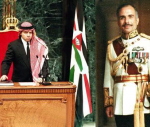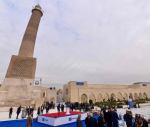You are here
The ‘alternative homeland’
Feb 24,2014 - Last updated at Feb 24,2014
In a meeting with senior government officials two days ago, King Abdullah expressed his principled position that he would never accept turning Jordan into the “alternative homeland” for the Palestinians.
Jordan is host to 40 per cent of Palestinian refugees who had to leave their homes after the Arab-Israeli war of 1948.
Rumour has it that Jordan would accept resettling Palestinian refugees in exchange for tens of billions of dollars.
Over the last month, Jordanians relentlessly debated this issue. Sceptics suspect that Jordan’s official line is amenable to this scenario. Indeed, this is a widespread impression in Jordan.
The King’s unequivocal rejection of this notion comes as Jordan is caught in a divisive debate over US Secretary of State John Kerry’s parameters for the Israeli-Palestinian framework plan.
It is not the first time that the King speaks about the issue. Time and again he reassured Jordanians that this notion is an “illusion”. And yet, some political forces insist on bringing up this matter every time Palestinians and Israelis negotiate a solution.
Even senior officials, such as former prime minister Marouf Bakhit, warned that the Palestinian leadership might reach a deal with the Israelis at the expense of Jordan.
Many Jordanians have a difficult time believing that the “alternative homeland” is not going to materialise.
This attitude has triggered unnecessary political tension in the country.
Denying the existence of such an option or a speech by the King is not going to change this attitude. One needs to go to the bottom of the issue to understand why many political forces, as well as citizens, fear such an outcome.
I have written many times warning that the trust gap between government and people is widening to an alarming rate. A wide segment of our society does not trust the government, nor does it trust the institutions.
The King reached this conclusion earlier on. He instructed the governments to work to restore people’s trust in it.
Unfortunately, successive governments failed to live up to this expectation. The insistence on a modest package of reform has backfired.
I believe that the number of Jordanians who believe that the government and the Parliament are trustworthy has taken a nosedive. Therefore, short of effective genuine reform, senior officials will continue to suffer from lack of credibility.
Over the years, the same recycled officials took pride that Jordan has escaped the Arab Spring. This does not make sense.
With a teetering economy and new challenges, some former officials warned that the senior officials in power are not up to the current challenges.
Political forces will not stop talking about the “alternative homeland” due to parochial political interests.
Putting an end to these rumours entails genuine reform and transparency on the part of the government.













